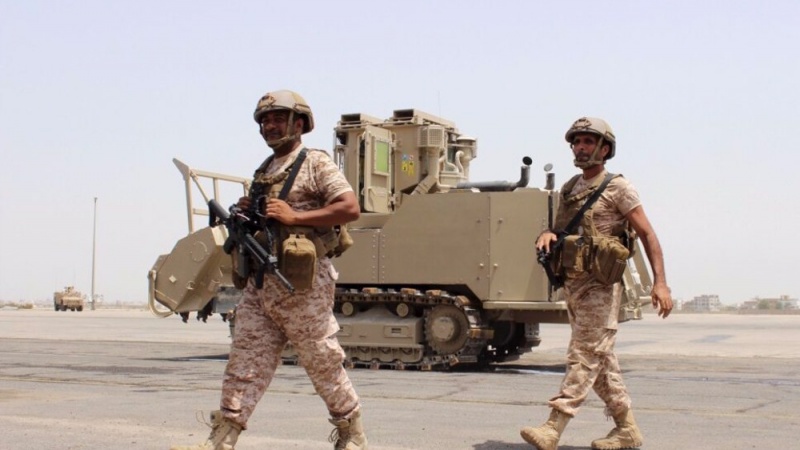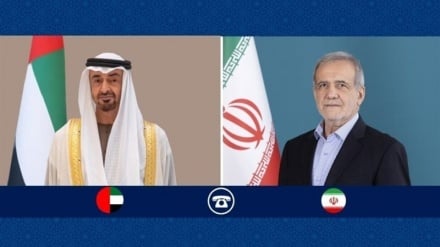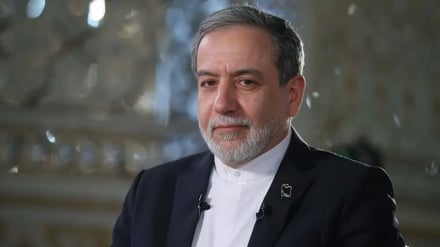UAE seeking to obstruct Saudi-Yemen peace talks: Report
-

Emirati soldiers walk past a military vehicle at the airport of Yemen\'s southern port city of Aden, on August 12, 2015.
The United Arab Emirates has been trying to hinder the negotiations between Yemen’s Ansarullah resistance movement and Saudi Arabia aimed at bringing an end to the Riyadh-led coalition’s war on the Arab world’s poorest nation.
Citing informed sources in the Sana’a government, the Lebanese al-Akhbar daily reported on Tuesday that Abu Dhabi wants to create an impediment to the peace talks because a cessation of hostilities would end its role in southern Yemen.
“The UAE is desperate to obstruct the peace process through its repeated attempts … to participate in the negotiations taking place between Sana’a and Riyadh, which achieved great progress last week,” the report said.
It was pointing to the Saudi-Yemen peace talks that excluded the Southern Transitional Council (STC), a UAE-backed militant group that wants the south to separate from the rest of Yemen.
Ansarullah will only negotiate with “the leader of the coalition,” the report added, in reference to Saudi Arabia and not the UAE.
“Sana’a is expecting Abu Dhabi to push the militia parties loyal to it to obstruct any peace agreement, because peace would strip it of any role in southern Yemen, and would not guarantee its survival in the Yemeni ports, airports, and islands, especially Socotra Island,” it said.
In March 2015, Saudi Arabia and the UAE launched the war on Yemen to restore power to the impoverished country’s Western- and Riyadh-allied government.
Since 2019, the pair have pursued contrasting policies, with the UAE withdrawing troops, seeking footholds in the south and acting as the STC’s patron.
Also in its report, al-Akhbar said that the STC is trying to reach out to Sana’a for talks, despite previously denouncing the talks, with STC Head Major General Aidarous al-Zubaidi and his colleagues expressing their keenness to engage in dialogue with Sana’a.
Meanwhile, Madram Abu Siraj, a southern separatist leader, said that Zubaidi is “only maneuvering” as he “lacks decision-making power” and only does “what is dictated to him” by the UAE.
Saudi Arabia and Yemen have both hailed progress in their recent peace talks.
Ansarallah officials say Riyadh has agreed to all of Yemen’s terms, which specifically include the withdrawal of British, Emirati, and US troops from the country.
Sana’a will not allow any foreign forces to remain on Yemeni territory under a potential agreement with Saudi Arabia, al-Akhbar reported.
The former Yemeni government’s President, Abd Rabbuh Mansur Hadi, resigned from the presidency in late 2014 and later fled to Riyadh amid a political conflict with Ansarullah. The movement has been running Yemen’s affairs ever since.
The war and a concomitant siege that the Saudi-led coalition has been imposing on Yemen has have claimed the lives of tens of thousands of Yemenis and turned the entire country into the site of what the United Nations has described as the world’s worst humanitarian crisis.
ME


